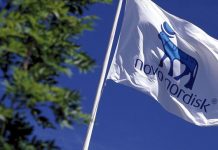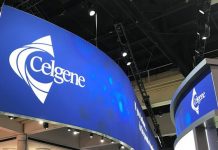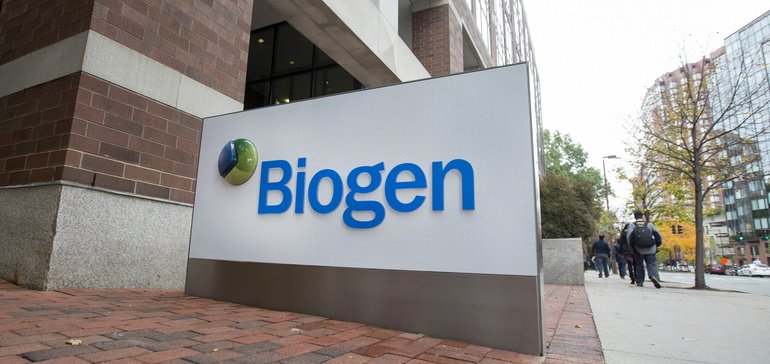Dive Insight:
Biogen took the most severe blow in its history last month, losing more than $20 billion in market capitalization on the announcement that the company’s most advanced Alzheimer’s therapy was unlikely to succeed in late-stage testing.
From Wall Street’s perspective, the aducanumab failure stripped much of the value out of Biogen’s pipeline, which targets hard-to-treat diseases like ALS and stroke. With the dust just starting to settle, analysts are questioning whether the biotech will attempt to de-risk its business by diversifying outside of neuroscience.
Biogen leadership said it’s too early to make that call, but did highlight how the company’s work in lupus, idiopathic pulmonary fibrosis and SMA may help connect neuroscience and therapeutic areas such as immunology and rare disease.
“Our Spinraza experience I think has been highly informative to us, and in growing our capabilities in and around rare diseases,” Biogen’s head of R&D Michael Ehlers said on the April 24 earnings call.
Ehlers also pointed to a few of Biogen’s pipeline candidates — including two for ALS being co-developed with Ionis Pharmaceuticals as well as those acquired via a buyout of Nightstar Therapeutics, which works on gene therapies for rare eye disorders — as assets that “provide positive synergy and give us another lens to look at additional external opportunities.”
Should a promising external opportunity arise, Biogen argues it has enough purchasing power to get a deal done. Based on cash flows from the third quarter, executives say the company has at least $42 billion worth of buying capacity.
Biogen, however, isn’t known for pursuing big ticket deals, let alone doing them at a rapid pace. That strategy looks unlikely to change, at least for now.
“We are committed to maximizing the value of our investments and to allocating capital and resources toward areas we believe to be of the highest potential return — something that demands a subtle approach both in the short- and the long-term,” Vounatsos said.
It’s unclear how long investors are willing to wait for Biogen to pull the trigger on M&A, particularly in light of other looming business challenges.
Despite solid growth, Spinraza (nusinersen) could soon face market competition from Novartis and Roche, which are respectively developing a gene therapy and an oral treatment for SMA.
“The data that we’ve generated with Spinraza really sets the bar for the degree of efficacy that’s really going to define standard of care,” Ehlers said.
Biogen’s top-seller, Tecfidera (dimethyl fumarate), is under pressure as well, with an inter partes review threatening a key patent protecting the blockbuster multiple sclerosis drug.
Though Biogen maintains confidence that Tecfidera’s patent will hold, it is also “preparing for all possible outcomes,” a gameplan which includes the potential launch of a novel oral drug for multiple sclerosis called Vumerity (diroximel fumarate). A Food and Drug Administration approval decision for Vumerity is expected in the fourth quarter.
Biogen shares fell about 2% Wednesday morning, with shares trading at roughly $225 apiece.
Top image credit: Getty Images








